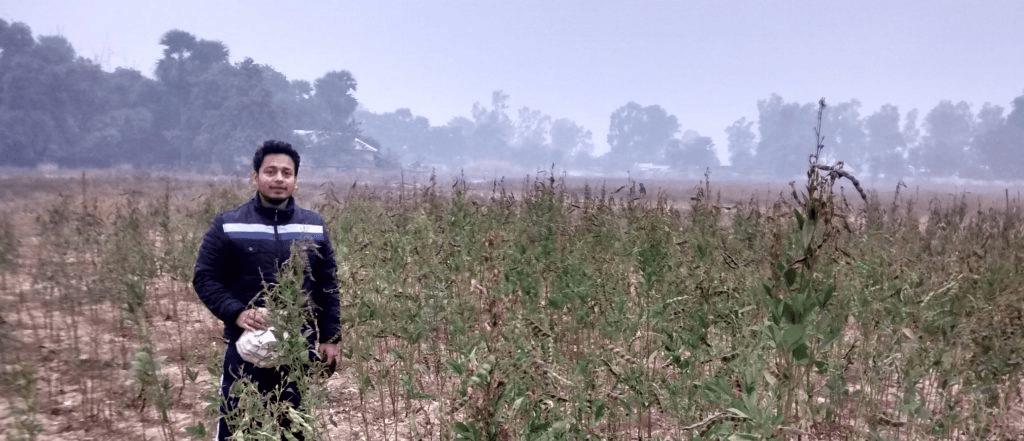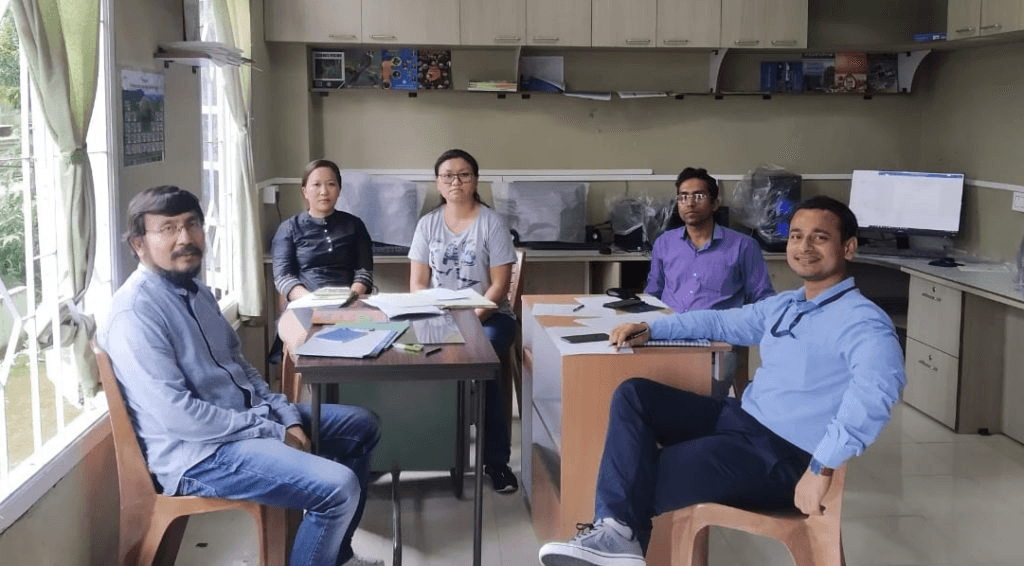
Dr Smrita Chaudhury
Raised in a family of entrepreneurs in Nagaon, Subhasish Das reminisces about his childhood bicycle rides and picnics on the riverbanks. His mother encouraged him to study science in his 11th and 12th grade at the Nagaon English Academy, Assam and explore beyond their family business for a career.
Unsuccessful in his first attempt at the medical entrance examination, Subhasish decided to pursue BSc in Zoology at Nowgong College, Gauhati University. He fondly remembers his professor Biva Goswami’s advice, “there are many engineers and doctors in the country. However, there is a dearth of scientists and you should try to fill that gap.” This advice laid the foundation for Subhasish’s choice of profession.
Subhasish continued his tertiary education in Forestry at the North Eastern Regional Institute of Science and Technology (NERIST), Arunachal Pradesh. While at NERIST, he studied the properties of wood obtained from the Duanbanga gradiflora (commonly called Khokan) tree for his MSc thesis project. Subhasish explains, “Duabanga grandiflora is used for manufacturing furniture, boats, and paper.” Beaming radiantly, he recalls winning the ‘best student research project’ award. He bagged the university gold medal too!
Reminiscing on his experience of living in a different place, he says that it enriches the individual in many ways. Unsurprisingly, Subhasish describes the contrasting cultural differences between his hometown and college. He observes, “unlike Assamese food, the indigenous food of Arunachal Pradesh is simple, boiled without any spices, and yet a healthy one.”
Dr Subhasish Das on-field at Sriniketan understanding lateritic soil and its influence on plant secondary metabolites

Afterwards, Subhasish joined the Indian Institute of Technology (IIT), Guwahati, as a junior research fellow to gain research experience to apply for a PhD programme. Through a Ministry of Urban Development (MoUD) funded project, he studied the topography and structure of urban soil in northeast India.
Subhasish rationalises, “India’s northeast region is marked by high mountains and deep valleys. The entire area is an active earthquake zone with a magnitude of over 5 on the Richter scale. In recent years, non-systematic town planning along with heavy rains and earthquakes, have caused floods and land erosion.”
At IIT-Guwahati, Subhasish estimated the ecological carrying capacity in specific regions for his project. He explains, “the ecological carrying capacity is the natural ability of an ecosystem (an area, in general terms) to support life. Rapid urbanization has greatly compromised soil stability.” He is confident that data accrued through his research could assist town-planners with land use and water resource management.
Subsequently, Subhasish applied for the INSPIRE fellowship to fund his PhD in Environmental Sciences at Tezpur University, Assam. During his PhD, Subhasish investigated the biochemical expression of Carlinoside in Pigeon pea leaves as a possible treatment option for liver disease and Capsaicin in Ghost chilli as a candidate to control nerve pain. He also developed techniques to enhance solid waste management using vermicomposting, a process in which earthworms decompose solid waste to manure. His research consolidated the importance of earthworms in removing toxic metals species like cadmium and zinc from municipal solid waste to produce clean vermicompost.

Dr Subhasish Das with his fellow colleagues
On asking about his experience as a PhD student, he says, “a stable mind and strong support are essential for undergoing the gruelling PhD tenure. I wanted to stay close to my family. So I applied for a PhD at Tezpur University.” Apart from receiving the INSPIRE fellowship, he cleared the UGC-NET and NE-SLET tests, prerequisites for teaching positions in Indian higher education institutes.
Professionally, Subhasish focused on securing a stable job and gaining work experience. He initially taught at Banasthali Vidyapith, Rajasthan. While at Banasthali Vidyapith, he published four papers in international peer-reviewed journals. However, his desire to return to the northeast fuelled him to look out for openings there.
Currently, he is an Assistant Professor at the Pachhunga University College, Mizoram University. He is satisfied with their systematic academic curriculum, ample time to perform research, hassle-free working environment, supportive colleagues, and inquisitive students that makes working at Mizoram University a delightful experience. He is also setting up his research laboratory with immense help from the university administration. Apart from learning to speak Mizo, the local dialect, living in Mizoram has helped him appreciate the simple, honest and humble Mizo society as a priceless treasure in the chaotic frenzy of the 21st century.
Subhasish shares that geographical isolation of research institutes hinders speedy repair of laboratory equipment and replenishment of research consumables. Thus challenging NE India’s STEM researchers to keep up with their pace of work. For students keen on pursuing a PhD, he shares that the Northeast Council (NEC) provides several PhD scholarships apart from numerous notable PhD fellowships.
Stemming from his personal experience Subhasish advises that apart from having an encouraging supervisor for a hassle-free PhD, “determination ratifies the capacity to overcome all odds. So, be patient, give your best, and time will do the rest.”
Acknowledgements: SciRio thanks Subhasish Das for allowing us to use the images in the piece.
Edited by: Hansika Chhabra





